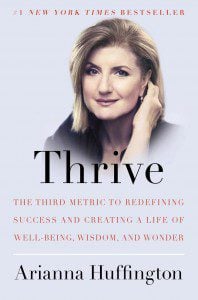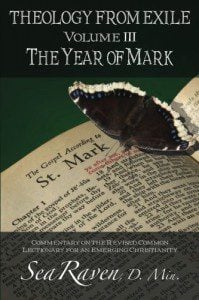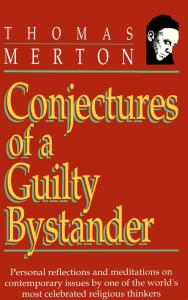In this passage, God speaks to Samuel four times. The first three times, Samuel does not know that the voice he hears is
God is always calling each of us. Whether we perceive God’s call is, however, often a matter of whether we have learned some of the many different ways of opening ourselves to God – such as Samuel’s simple phrase, “Speak, God, for I am listening.” Notice that Samuel didn’t continue talking after that. He stopped speaking, and listened for God in the silence. But instead of asking you to either believe me or the Bible about how one may listen for God, I invite you to experiment with listening to God for yourself.
As preparation for preaching this text, I have included five points at which you are invited to pause and listen in contemplative silence for how God may be speaking to you through this text. You may want to take time to journal what you experience in the silence.
Pause for contemplative silence to center yourself in God’s Presence and to become fully aware of this present moment
In verse eleven, God says to Samuel, “See, I am about to do something in Israel that will make both ears of anyone who hears of it tingle.” Here we see that God is active, not only in the personal life of Samuel, but also in the larger systems, structures, and institutions of which Samuel is a part – in this case, in the life of ancient Israel. Where do you see God already at work in the larger systems, structures, and institutions of which you are a part?
Pause for Discernment in Contemplative Silence and Journaling
In verse twelve, Samuel hears distressing news from God. There is corruption in Eli’s house, and a change needs to be made. Samuel is charged with delivering the difficult news. How is God prompting you to take one small concrete step of change?
Pause for Discernment in Contemplative Silence and Journaling
In verse fifteen, we read that “Samuel was afraid to tell the vision to Eli.” In the use of the word “vision,” we can infer that Samuel’s experience of God’s call involved some sort of “seeing” as well as some sort of “hearing.” So, I invite you, not only to “listen” to the voice of God in the silence, but also to be attentive to associations from your other senses. Be open to the many different ways God is communicating to you in the silence.
Pause for Discernment in Contemplative Silence and Journaling
“Samuel was afraid to tell the vision to Eli.” In light of Samuel’s trepidation in sharing the result of his discernment, you may also be experiencing some anxiety as you discern what God may be calling you to do. That is natural. But, as Samuel discovered, and Eli affirmed, God will be with you as you carry out the action God is calling you toward.
Does your discernment process feel rushed? If so, experience this sense of feeling rushed as an invitation to take time on your own to create more time and space to listen for how God is calling you.
I now invite you to take a final time of silence to discern around what action God may be calling you to take as a result of this discernment process. Considering all the insights and movements you have experienced this morning, do you sense God calling you to any particular action? (It may be quite a small action, but that is nonetheless a step in the direction to which God is calling you to move.) If you perceive many possible actions, choose the one around which you have the most enthusiasm.
Pause for Discernment in Contemplative Silence and Journaling
We read in scripture that Jesus often withdrew from the crowds so that he might be alone with God in prayer. And this morning I invite you to consider that it was, in large part, Jesus’ commitment to regular contemplative prayer that allowed him to discern God’s call for him so clearly. Because Jesus took time to be still and listen for God, he was able to encounter those he met from a place of centeredness, love, and generosity. And, as a result, he was often able to discern, in each new situation, the one, next, contemplative action to which God was calling him – the one best next step to help transform the person, group, or institution in front of him to be more loving, more just, more fully a manifestation of the kingdom of God on earth.
Consider that it was only after forty days of silence and solitude in the desert, immediately following his baptism, that Jesus was able to discern the ways God was calling him to do in order to resist the temptations: “One does not live by bread alone,” “Do not put God to the test,” “Worship God and only God.”
It was because Jesus took time to be still and listen for God that he was able to walk into the tense situation of a crowd preparing to stone a women accused of adultery and discern the one, next contemplative action to which God was calling him: “Let the one without sin throw the first stone.”
This was a pattern throughout his ministry. He was consistently able to discern the one, next contemplative action that would turn the tables on the situation at hand: “Give to Caesar what is Caesar’s and to God what is God’s,” “Turn the other check,” “Go the second mile.” These small, simple sayings and actions diffused tense situations, changed the dynamics of entrenched conflicts, and softened culturally-imposed boundaries – thereby, moving from petty surface issues to the deep heart of the matter at hand, allowing for the possibility of transformation.
This is what we have been seeking through our interaction with this passage: time and space to be still and open to God that we might discern how God is calling us right now. We have been spending time in silence that we might make time and space to discern the one, next contemplative action to which God is calling us. The hope is that we might, if only in a small way, make some part of our lives incrementally more loving, more just, more fully a manifestation of the God’s way on earth.
To close with a story, Mother Theresa of Calcutta was once asked by a reporter, “How do you pray.” She said, “Mostly I listen.” The reporter then asked, “What does God say?” to which she replied “Mostly God listens.” Seeing his perplexed face she said, “If this doesn’t make sense to you, you may well never understand unless you try it for yourself.” So, go from this place to listen in many different ways for how God is calling you. And know that God will be with you every step of the way. Amen.
For Further Study
Elizabeth Liebert, The Way of Discernment: Spiritual Practices for Decision Making (Westminster John Knox Press 2008): “How can Christians invite God into their decision making? Liebert, who teaches spirituality at San Francisco Theological Seminary, says that discernment is about aligning human will with God’s. Unlike ordinary decision making, it requires prayer and the accountability of a faith community to help us know which way to go. Drawing on Christian thinkers through the ages, from Ignatius of Loyola and Jonathan Edwards to Frederick Buechner and Thomas Merton, Liebert teaches that discernment is both a spiritual gift and an acquired habit that can be honed through regular practice. To that end, she provides extensive exercises to help readers identify and work through discernment issues in their own lives. Readers should plan to take time with this book, because the exercises yield their richest rewards through careful and slow implementation. While the author cautions that absolute certainty is rarely possible, a diligent practice of discernment can lead to confirmation. Liebert’s wise spiritual counsel will aid many seekers as they determine their next step.”
Debra K. Farrington, Hearing with the Heart: A Gentle Guide to Discerning God’s Will for Your Life (Jossey-Bass 2002): “Farrington’s touch is indeed gentle as she guides readers through the steps of discernment. Rather than relying on cautionary tales of the bad things that will happen if people fail to discern God’s will, Farrington emphasizes God’s love throughout the book. She makes the case that God’s will for humanity matches perfectly with the heart’s deepest desires and enables people to do the most good for those around them. Her emphasis on the positive is enhanced by her balanced use of scripture, personal anecdotes, and stories from the lives of Christians throughout history, such as the Desert Fathers and the Society of Friends (Quakers). Perhaps most impressive is Farrington’s ability to use scripture and Christian orthodoxy as the primary basis of her insights (she is an Episcopalian), but at the same time honor less orthodox and even non-Christian traditions. They include the Quaker practice of settling into silence and waiting on God as well as Lectio Divina, a method for meditating on scripture. Farrington’s final section invites readers to go through the process of discernment, but one need not be at a crossroads to appreciate this book.”
Walter Wink, The Powers That Be: Theology for a New Millennium (1999): “Wink reclaims the divine realm as central to human existence by offering new ways of understanding our world in theological terms. He reformulates ancient concepts, such as God and the devil, heaven and hell, angels and demons, principalities and powers, in light of our modern experience. He helps us see heaven and hell, sin and salvation, and the powers that shape our lives as tangible parts of our day-to-day experience, rather than as mysterious phantoms. Based on his reading of the Bible and analysis of the world around him, Wink creates a whole new language for talking about and to God. Equipped with this fresh world view, we can embark on a new relationship with God and our world into the next millennium.”
The Rev. Carl Gregg is a trained spiritual director, a D.Min. candidate at San Francisco Theological Seminary, and the pastor of Broadview Church in Chesapeake Beach, Maryland. Follow him on Facebook (facebook.com/carlgregg) and Twitter (@carlgregg).












